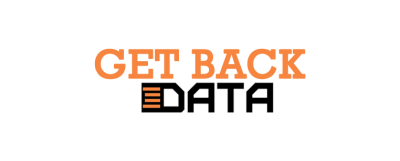10 Mentoring Platform’s Core Components

Mentoring is a process of providing guidance, support, and expertise to help individuals achieve their personal and professional goals. A mentoring platform is an online space where mentors and mentees can connect and communicate with each other. The rise of mentoring platforms has brought about a new era of mentorship, where individuals from different parts of the world can connect and share knowledge with each other. In this blog, we will discuss the 10 core components that are essential for any successful mentoring platform.
User Management
User management is a critical component of mentoring platforms. It involves creating and managing user profiles, including registration, login, and profile information. User management also includes assigning roles and permissions to users based on their needs and requirements. Effective user management is important to ensure that the platform is secure and that users can access the appropriate resources and tools.
Matching Algorithm
A matching algorithm is an essential component of mentoring platforms. It is responsible for pairing mentees with mentors based on their interests, goals, and preferences. A good matching algorithm is personalized and considers each user’s unique needs. It should also be flexible enough to accommodate changes in the mentee’s goals or preferences.
Communication Tools
Effective communication is the key to a successful mentoring relationship. Communication tools such as instant messaging, video conferencing, and email are essential for connecting mentors and mentees. These tools also help set up meetings, track progress, and share resources. The communication tools should be user-friendly, easily accessible, and support multiple languages.
Resource Library
A resource library is a collection of materials that provide valuable information, guidance, and advice to mentees. The library can include articles, videos, e-books, webinars, and podcasts. A good resource library is user-friendly, well-organized, and easily searchable. The resources should also be relevant to the mentee’s goals and interests.
Goal Setting and Tracking
Goal setting and tracking is a critical component of mentoring relationships. It helps the mentee to define their goals and create a plan of action to achieve them. The mentor can then provide guidance and support to help the mentee stay on track. A good goal setting and tracking system should be user-friendly, easily accessible, and support multiple goals.
Progress Monitoring
Progress monitoring involves tracking the mentee’s progress towards their goals. It helps the mentor to understand the mentee’s strengths and weaknesses and provide guidance and support accordingly. A good progress monitoring system should be user-friendly, easily accessible, and support multiple metrics.
Feedback Mechanism
A feedback mechanism is essential for providing feedback on the mentoring relationship. It allows the mentee to provide feedback on the mentor’s performance and the effectiveness of the mentoring platform. The feedback mechanism should be user-friendly, easily accessible, and anonymous.
Reporting and Analytics
Reporting and analytics are essential for tracking the effectiveness of the mentoring platform. It helps the mentor and the mentee to understand their progress towards their goals and identify areas for improvement. A good reporting and analytics system should be user-friendly, easily accessible, and support multiple metrics.
Security and Privacy
Security and privacy are critical components of any mentoring platform. The platform should be secure and protect the user’s data and information from unauthorized access. The privacy policy should be transparent and provide clear guidelines for collecting, storing, and using user data.
Conclusion
Mentoring platforms are an excellent way for mentors and mentees to connect and share knowledge with each other. To ensure the success of a mentoring platform, it is important to have these 10 core components in place. User management, matching algorithm, communication tools, resource library, goal setting and tracking, progress monitoring, feedback mechanism, reporting and analytics, and security and privacy are all critical components that should be included in any successful mentoring platform. With these components, a mentoring platform can provide a personalized and effective mentoring experience to help individuals achieve their personal and professional goals.
FAQs What are the benefits of using a mentoring platform?
Using a mentoring platform can provide several benefits, including access to a global network of mentors, personalized mentorship, and a range of resources and tools to support the mentoring relationship.
Can anyone use a mentoring platform?
Yes, anyone can use a mentoring platform. Most platforms are designed to accommodate individuals from various backgrounds and experience levels.
Are mentoring platforms secure?
Yes, mentoring platforms are designed to be secure and protect the user’s data and information from unauthorized access. It is important to choose a platform with a transparent privacy policy and robust security measures in place.
How do I find a mentor on a mentoring platform?
Most mentoring platforms use a matching algorithm to pair mentees with mentors based on their interests, goals, and preferences. Once you have created a profile on the platform, you can explore the available mentors and select one that meets your needs and requirements.










